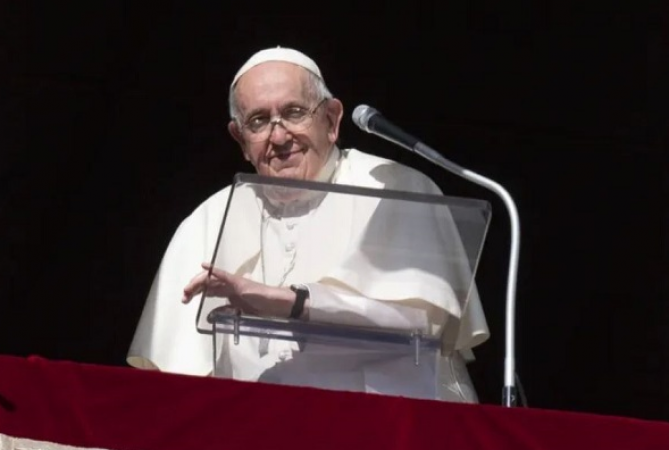
Manama: A Sunni monarchy backed by Saudi Arabia and the United Arab Emirates violently ended the 2011 Arab Spring protests on an island off the coast of Saudi Arabia.
Since then, Bahrain has jailed Shia activists, expelled others, revoked the citizenship of hundreds of people, banned the largest Shia opposition group and shut down its top independent newspaper.
Devin Kenney, a researcher at Amnesty International in Bahrain, said the situation had "a giant elephant in the room". "Coexistence and dialogue are the watchdogs of this journey, and the Government of Bahrain represses civil and political liberties, which are essential to the coexistence and stability of dialogue."
Also Read: US Marine who attempted to blow up Indiana mosque converts to Islam
Despite receiving repeated criticism from local and international rights activists as well as the UN Human Rights Special Rapporteur, Bahrain insists that it respects human rights and freedom of expression.
As part of his efforts to advance dialogue with the Muslim world, Francis is visiting Bahrain from 3–6 November to attend a government-sponsored conference on East-West dialogue and Bahrain's smaller Catholics. To become a minister of the community.
'Bahrains live under sectarian oppression'
While some Shia opposition leaders welcome Francis' visit, they hope he will not shy away from the subject of long-running sectarian conflict.
"Communal persecution, discrimination, intolerance and systematic government repression" are factors that the citizens of Bahrain must contend with, according to al-Wafaq, a Shia opposition group that was outlawed and destroyed by a court in 2016.
This is Francis' second visit in several months to a country with a majority Muslim population as well as to the Gulf Arab state, demonstrating the importance of dialogue with the Muslim world in his nearly ten years as pope.
In 2019 he went to the United Arab Emirates, and in September he traveled to Kazakhstan to attend a gathering of religious leaders.
He will also meet Muslim leaders in Bahrain, most of whom are foreign workers from the Philippines and India, besides celebrating Mass for the country's Catholic community.
Pope will emphasize on interreligious dialogue and religious freedom
When asked whether he would raise human rights issues during the visit, Vatican spokesman Matteo Bruni cited Francis' repeated calls for religious freedom and interreligious dialogue.
At the Vatican, Bruni told reporters: "The position of the Holy See and the Pope with respect to religious freedom and independence is clear and well known. He would not say whether Francis would make any mention of how it was with the Shia community in Bahrain. The deal has been done by the Govt.
Also Read: Pope's visit to Bahrain to strengthen ties with Islam
The island kingdom, which has a population of about 1.5 million and is about the size of New York City, has long struggled with economic issues.
The first oil well among its Gulf Arab neighbors was discovered by Bahrain in 1931, whose name translates from Arabic as "two seas". But as of now, it is still in debt of billions of dollars and is dependent on the help of its neighbors to survive. Manama, the country's capital, aspired to become a global financial hub, but neighboring Dubai has overtaken it.
Pope likely to speak about Shiites "behind the scenes"
According to Bishop Paul Hinder, the Catholic apostate administrator of Bahrain and surrounding countries, the Al Khalifa royal family, which has ruled Bahrain since the late 1700s, invited Francis, possibly because of competition with other Gulf Arab countries.
Hinder predicted that the Pope would raise any "problematic" issues regarding Bahrain's Shiites, but "behind the scenes" and possibly not in public statements.
I am somewhat familiar with the fashions in the region, Hinder said. He does not like direct criticism,
Activist: Interfaith talks in Bahrain not conducive
Bahrain's human rights organizations openly criticize the monarchy, despite being almost entirely exiled because of its long-running crackdown on dissent.
Jawad Feroz, the head of Bahrain's Salaam for Democracy and Human Rights, claimed that the Bahrain government engages in "tangible religious persecution" and discrimination against its citizens.
The arrest and deportation of senior religious figures, as well as the detention of hundreds of others, were cited by the former lawmaker who now lives in exile in Europe.
Feroz said that Bahrain's "ambiance is not conducive to hosting an interreligious gathering," adding that the government is engaging in a "systemic campaign that is contrary to these principles."
Bahrain's actions are influenced by regional politics. Iran's Shia theocracy, which is located across the Persian Gulf from Bahrain and denies Bahrain's allegations, has been accused of instigating unrest and arming militants to destabilize the nation. Terrorist Shia organizations have attacked the nation at the grassroots level.
Also Read: Palestinian rage increases in the face of Israeli election boycott
In response to several inquiries from The Associated Press, the government of Bahrain stated that the island "prides itself on its values of tolerance and its long history of peaceful co-existence."
The government declared that "freedom of religion and worship is protected under the constitution, and the kingdom has a zero-tolerance policy towards discrimination, persecution, or the promotion of division based on ethnicity, culture, or faith."